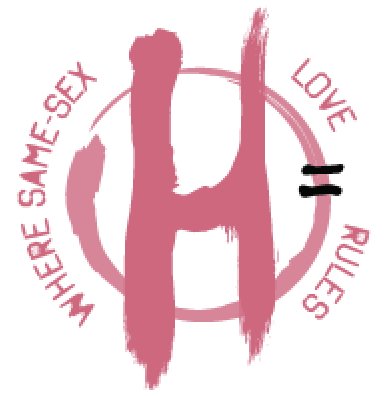Viewpoints
Website Update: We Were Right
This website was started in 2019 as a medical watchdog organization when there was little information regarding pediatric transition and its risks to LGB youth. All the predictions of concerned LGB people have come to pass (proof of poor evidence, medical damage, increased persistence, increased regret, declining public support for “LGBT” causes). Many serious people are doing quality work regarding “gender-affirming care.” GHQ is ceasing as a nonprofit organization entity project. But the site will continue to be updated with relevant links to material. Our members are going to focus on other projects confronting this agenda. For more commentary on this subject see The Homoarchy’s blog feed and Justine Deterling’s Substack.
Gender Health Query seeks a broad coalition of same-sex attracted people and allies from differing backgrounds and opinions. The list below represents the viewpoints of our core members. These are the viewpoints of many people involved in the discussion around the increasing numbers of young people medically transitioning, and the influence of gender ideology around biological sex and gender. Gender Health Query was created, in part, as a result of ongoing conversations across many platforms, involving parents, detransitioners, desisters, LGB people, feminists, therapists, trans people and doctors.
The viewpoints of core members may not completely represent everyone involved with our group and this website, and that’s okay. At minimum, we represent people who support equality for all in employment, housing, education, and marriage rights. We also seek empirical evidence around support for a youth’s long-term physical and mental health. This requires ongoing dialogue and research.
REPRESENTED VIEWPOINTS
1) We support the normalization, full social acceptance, and protection of all gender nonconforming children, teens, and adults. We call on parents, schools, and society in general, to end the harmful treatment that gender nonconforming people are often subjected to (in terms of both gender expression and sexual orientation).
2) We support a “born in the right body” cultural narrative, rather than a “born in the wrong body” cultural narrative, in regards to gender nonconforming young people. A youth’s outcome with medical body modifications, versus an outcome without medical modifications, is considered value-neutral by many affirmative model advocates (see here and here). Medical transition involves health risks, sterility, financial costs, and life-long physical and psychological dependency on the medical industry. Full brain development is not reached until age 25, weakening the concept of a young person’s ability to consent to permanent medical body modifications. A non-medical path, or a less dangerous and invasive medical path, is preferable. No one’s life experience is more valuable than another’s. We merely seek to acknowledge the social, financial, and physical cost of medical transition.
3) Trans-identified youth deserve the best care to support their long-term mental and physical health. Youth who may outgrow gender dysphoria, deserve the best care to support their long-term mental and physical health and to protected form over-medicalization.
4) Preventing any unnecessary medical treatment of minors and young adults for problems that could resolve with therapy or maturation is a valid but currently under-supported goal of mental health and medical professionals. Alleviating distress in a minor at the moment may not be the best action for the youth’s long-term psychological and physical health.
5) Young adults are transitioning in unprecedented and unstudied numbers, and are not fully mature while they’re between the ages of 18 to 25. They will likely benefit from good mental health counseling and support, as problems such as shifting gender dysphoria, continued anxiety and depression, and suicide ideation often remain post transition (see here and here).
6) We believe in role modeling self-esteem, based on behavior and treating people with mutual respect, while deemphasizing the importance of identity and gender, where young people are concerned. These latter traits are unrelated to a person’s character. We are seeing negative and socially contagious consequences resulting from a heavily gender-focused youth culture. There is research showing that an environment of intense identity politics and rumination, is unhealthy for young people, and may be negatively impacting society.
7) We want to acknowledge the need for support and acceptance of dysphoric individuals. The rights of homosexuals and women/girls to define themselves and their issues, based on biological reality (not subjective feelings about gender), also deserves respect. Conflicts of rights are occurring between these groups, that are ultimately unnecessary (see here and here).
8) Organizations should prioritize programs to protect youth who are bisexual, lesbian, gay, or trans from higher rates of abuse and homelessness. Trans youth of color who are attracted to males are at risk for higher rates of prostitution and violence. We believe financial resources should go to these priorities, rather than funding expensive locker room and sports team legal cases, where there’s a legitimate conflict of rights with biological females (defining Title IX based on biological sex, rather than gender self-perception).
9) Organizations who purport to represent homosexual and bisexual people should acknowledge that trans-identification can be related to internalized homophobia, issues around being a pubertal female, mental health issues, and other reasons that may go beyond the “innate gender identity” narrative. It is same-sex attracted youth who are at risk for transition regret.
10) Organizations who label themselves as “LGBT,” the mental health and medical community, journalists, and schools, should acknowledge more false positives are going to happen when medically transitioning minors, a significant consequence and human rights issue.
11) Affirmative model advocates have described the new gender movement as akin to a child and teen lead revolution, pushing inhibitions around gender (see here and here). We believe it is the responsibility of adults to respect youth, while providing context and structure to young people, to protect them from poor decision making and gender and sexual confusion.
GHQ is concerned about increases in youth diagnosed with dysphoria & conflicts around gender
GHC is a nonprofit LGBT medical & censorship watchdog organization regarding the medicalization of gender dysphoric minors. & a site to culturally critique gender ideology & LGBT identity politics.
LGBT medical & censorship watchdog org on treating gender dysphoric minors in an affirmative model
“To prevent the over-medicalization of gender nonconforming youth, harm from medical treatments to trans-identified minors, & confusion & rights conflicts arising from ideologies about gender within & outside of the LGBT community. This will be done through outreach to the mental health & medical community, LGBT orgs, parents, schools, media, & the public.”
About LGBT People from Gender Health Query Requesting More Research Around Increases in Trans Minors
Board & advisory board members of Gender Health Query, a non-profit medical & censorship watchdog organization that examines issues around gender dysphoric minors, & gay, lesbian, & bisexual youth.


